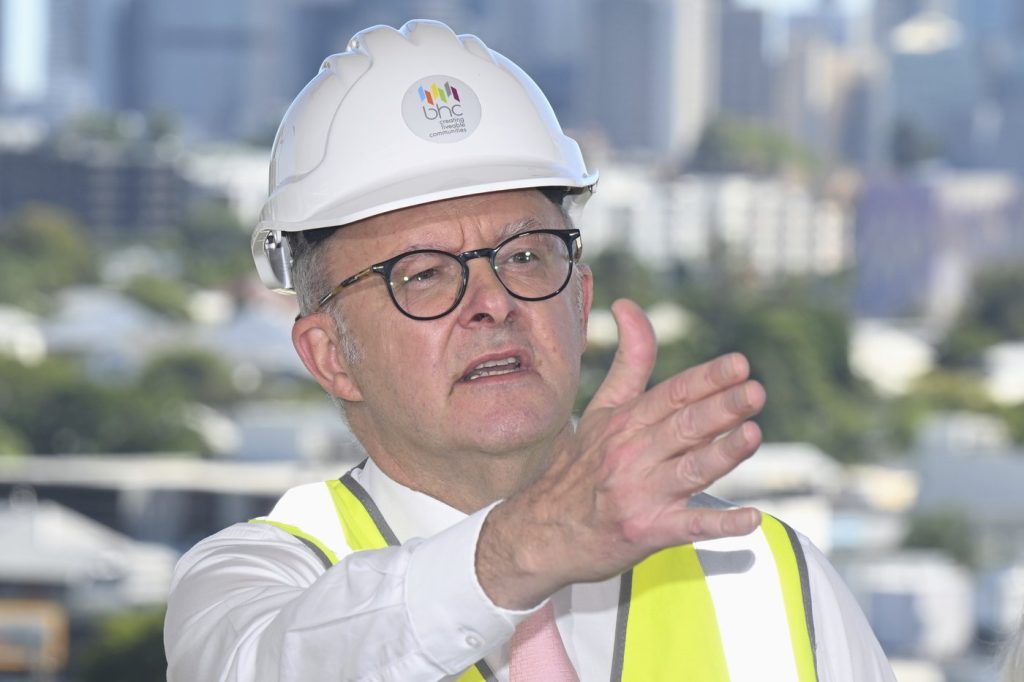MELBOURNE, Australia (AP) — Anthony Albanese is aiming to become the first Australian prime minister in 21 years to secure two consecutive electoral victories as the nation votes on Saturday. The last prime minister to achieve this milestone was John Howard, who won a fourth consecutive term in 2004 before being ousted three years later, initiating a tumultuous phase in Australian politics characterized by six leadership changes.
During a press conference on Friday, Albanese acknowledged the significant number of undecided voters, stating, “There’s a lot of undecided voters. We have a mountain to climb. No one’s been reelected since 2004.” His center-left Labor Party presents stark contrasts to the conservative Liberal Party, particularly regarding energy policy and a mutual commitment to reach net-zero greenhouse gas emissions by 2050. The Labor Party proposes to replace fossil fuel electricity generators with renewable energy, whereas the Conservatives advocate for the construction of nuclear reactors.
Albanese, 62, grew up in Sydney as the only child of a single mother who was an invalid pensioner. They spent their early years in public housing. Albanese's commitment during his campaign has been to ensure that “no Australian is held back and no one is left behind.” A key promise of his administration was to conduct a referendum in 2023 aimed at enshrining an Indigenous advisory body in the constitution, known as the Voice, to address issues affecting Indigenous Australians, who constitute 4% of the population and represent the nation’s most disadvantaged ethnic group. However, the referendum faced defeat, drawing criticism that the government's focus on a minority group sidetracked attention from broader issues during an inflation crisis.
Albanese, who is divorced and has an adult son, plans to become the first Australian prime minister to marry while in office after proposing to his fiancée Jodie Haydon on Valentine’s Day last year. Although they intended to have a wedding before the election, strategists worried that such a celebration amid a cost-of-living crisis could negatively impact his reelection bid. Albanese has since stated the wedding will take place after the election but before the year's end.
The prime minister has faced scrutiny regarding his purchase of a clifftop home in Copacabana Beach for 4.3 million Australian dollars ($2.7 million) last year. This property, located 50 kilometers (30 miles) north of Sydney, has drawn media attention as many Australians grapple with a shortage of affordable housing. In response to the criticism, Albanese remarked, “I understand I’m fortunate. I also know what it is like to struggle.”
Since Howard was displaced as prime minister in 2007, Australia has seen six individuals hold the position, including Kevin Rudd, who served two different terms. Most recent leaders have faced removal by their parties due to declining approval ratings, with only Scott Morrison successfully serving a full three-year term after taking office in 2019 prior to being defeated by Albanese in 2022. Albanese now has the opportunity to become the first leader since Howard to win back-to-back elections.
The likelihood of Albanese's stability as prime minister is partly attributed to rule changes within the Labor Party that have made it increasingly challenging to remove a sitting leader. Following Rudd’s second return in 2013, he implemented stricter rules requiring 75% support from Labor lawmakers to instigate a leadership change, a shift from the previous simple majority requirement. Party members with membership fees but no elected office also gained a say in leadership changes.
Rudd's tenure was notable for the abrupt way he lost his position in 2010 when Julia Gillard challenged him, leading to his unopposed replacement. Gillard then led through a general election before her eventual leadership challenge by Rudd. The changes introduced during Rudd's tenure have rendered leadership alterations a more deliberate process, involving extensive consultations beyond just Parliament. Similarly, the Liberal Party has also tightened its regulations since their last ousting of a prime minister in 2018.











